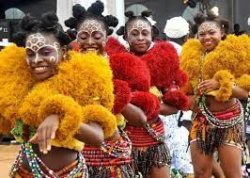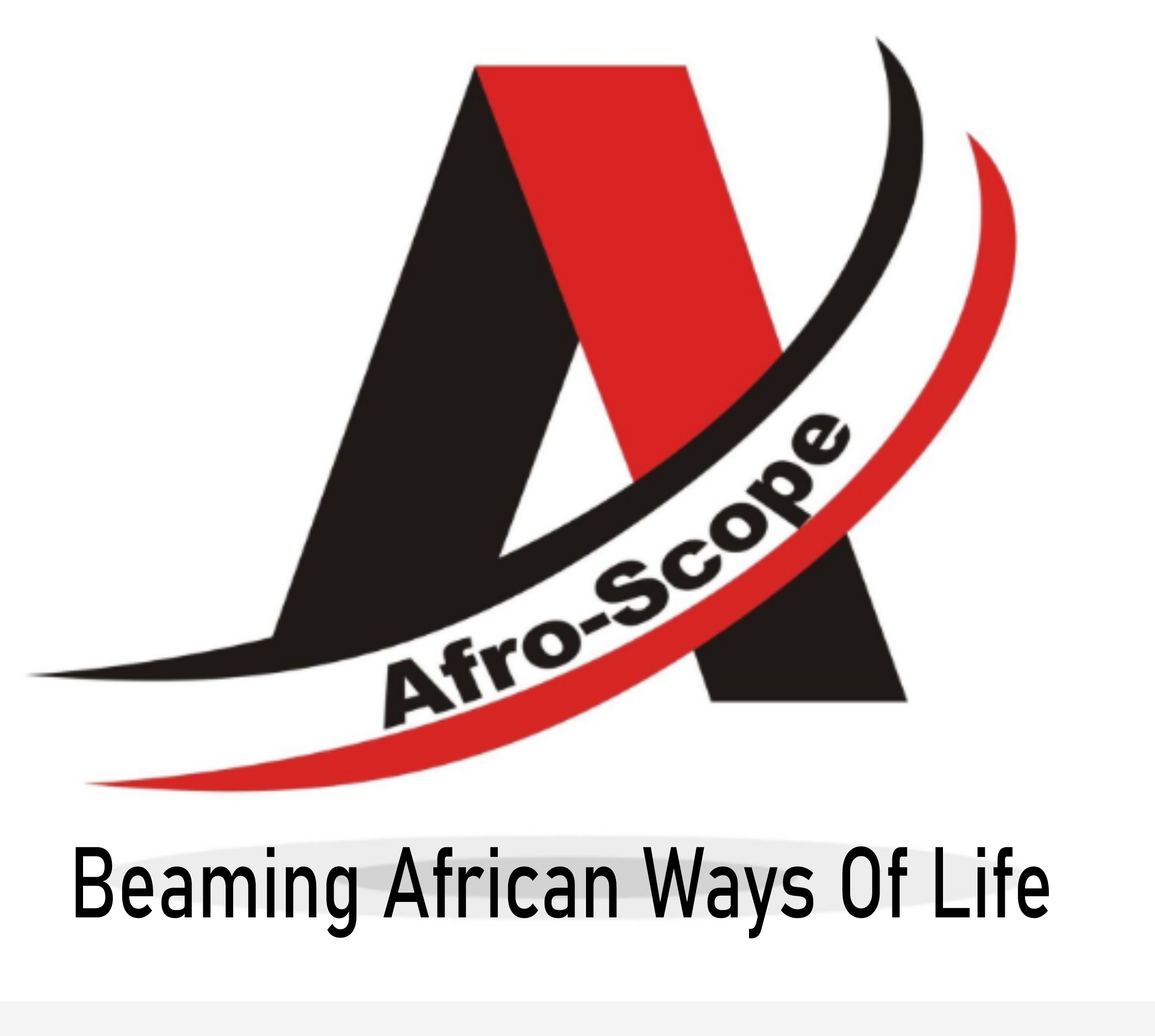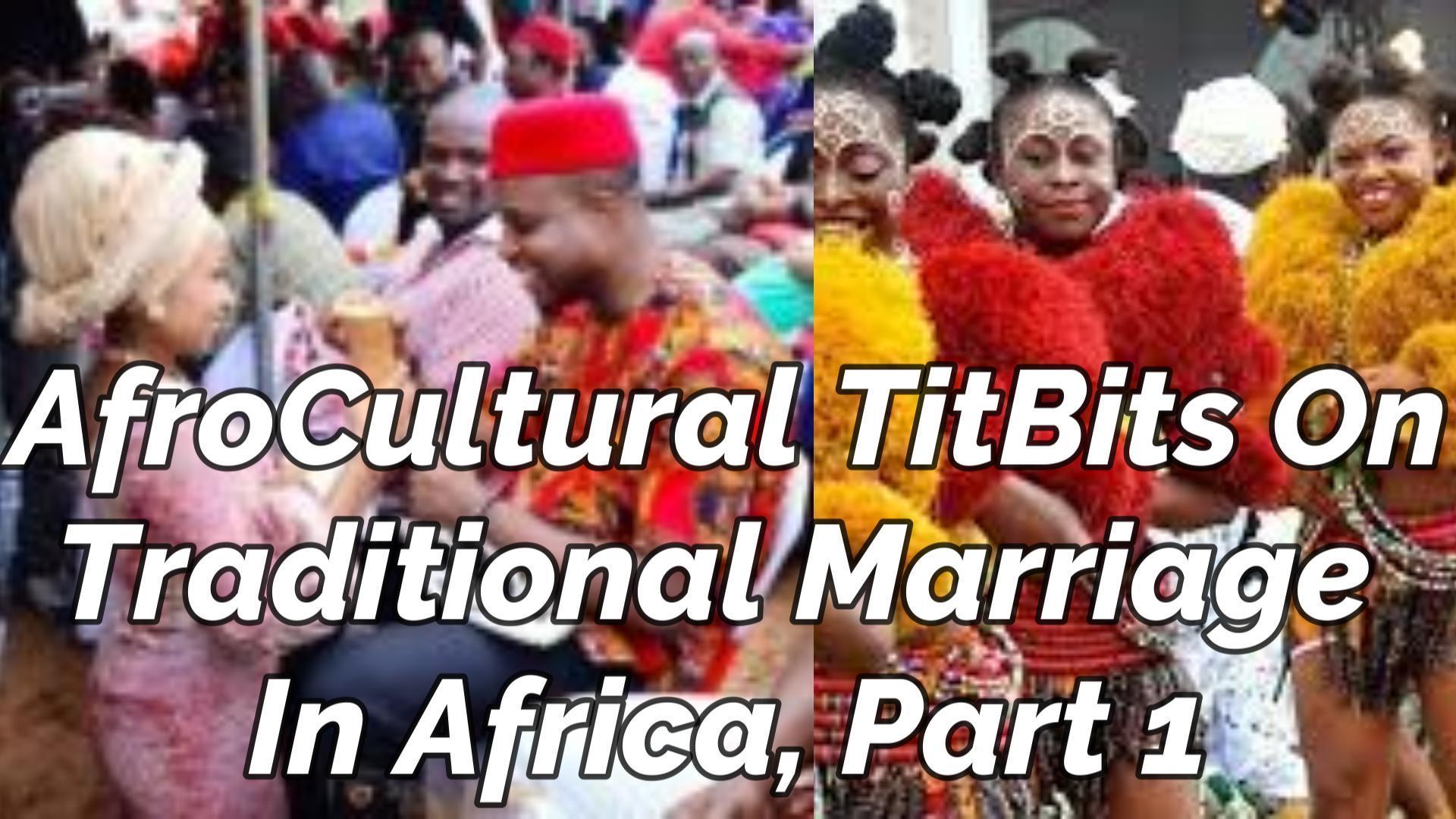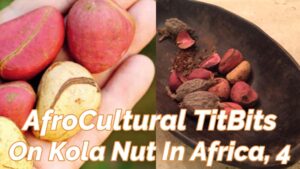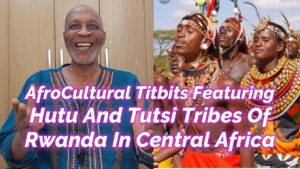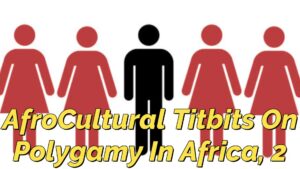August 23, 2022
GENERAL INTRODUCTION
Greetings, folks!
I am Harry Agina. It’s time again for “AfroCultural Titbits” on Afro-Scope, brought to you by our traditionalist, named Udoakpuenyi. This is the first in our series on Traditional Marriage in Africa. I must inform our first time readers that we have already done a couple of series under the “AfroCultural TitBits.” I have links at the end of this, to take you to them. One is our series on Kola-nut, the “Holy Communion” nut of a tribe in Nigeria. The other is a link to our series on Polygamy In Africa.
Now, folks, especially our non-African folks, do remember the InterCultural-Exchange purpose of NBB’s “AfroCultural TitBits.” And, if you’re our first-time audience, then we want you to know our purpose. We aim to inform and enlighten you on various traditions and other elements of the African Culture, one little bit at a time. We are Global Media Exchange, Incorporated, out of Texas, USA. Public Enlightenment on TV and print is one of our core specialties. Not to forget that we are primarily AfroCentric in approach. No wonder, we have “AfroCultural Dramas,” and this very “AfroCultural TitBits” here on Afro-Scope.com.
If you want to find out some of the simple cultural-differences between the west and Africa, this is the place to come, henceforth. Wait, did I just say between the west and Africa? We do want the rest of the world to also know more about Africa, too; don’t we, huh?! Of course, we do.
Anyway, I am personally putting the InterCultural-Exchange team together for ya! Um huh, after all, I have the privilege to have lived in both worlds, and as a Communications (Humanities) Scholar in the west, for that matter. I do have special interest in the preservation and promotion of all cultures of the world. My school of thought insists that there is no better culture in the world, than the other. All cultures of the world are legitimate and beautiful in their own ways. One common thing among them is that they all have bad traditions that must be eliminated, without throwing the baby away with the dirty bath-water. It truly pisses me off that some ignorant and foolish African Pentecostal Christians are destroying the African Culture. And they do it in the stupid name of Christianity…terribly misguided!!!
I have one question that is recurrent in my commentaries on this matter, thus: Have you ever wondered what the world would be like, if we were all the same in everything, without varieties, huh? I mean, same language, same color, same size, same way to get married, and same everything else? Terribly boring, I say! Let’s say, we’re all Chinese, with just that funny language spoken by every mortal on earth. Hahahaa…no, my bad! I didn’t really mean to mock the Chinese language. After all, it sounds almost like the Calabar language, next door to my tribe in Nigeria, Africa. But that’s my point, they are still not the same. And they are all cool the way they are. The language and other varieties make us different, and beautiful in our own ways. Our contribution here is bridging the understanding-gap, for better tolerance. Phew! All that, just to say that I do know what I’m doing with this InterCultural Exchange thing.
Anyway, sorry again. Our focus now is the concept called marriage, and how the Africans do it, in Africa. One last comment, and then I will hand you to our traditionalist, Udoakpuenyi, to do his thing. I have a form of a inter-cultural comparison for ya. I want to give you one marked cultural difference between western girls and African girls, in the way that the two cultures look at marriage. A typical African lady is very conscious about “biological-clock.” And her typical American counterpart doesn’t really give a hoot about that “biological-clock” shit. That’s relatively speaking, of course. Expatiation on this comes later. Now, here’s our traditionalist, Udoakpuenyi, doing his thing:
Traditional Marriage In Africa, Part 1:Stage One, Meeting Of Friends:Yes, thank you good people. I am Udoakpuenyi, and this is about traditional marriage in Africa. We’ll talk about the Dos, and the Don’ts. Then, some commonalities and variations, according to tribes and regions in Africa. Marriages all over the world are basically unions between families across varieties of divides, including racial and regional boundaries sometimes. The two families of a bride and her groom are suddenly one big happy loosely-tied family. That highlighted ‘loosely-tied family’ is elsewhere in the world. In Africa, the families are more than just loosely-tied. It’s a tighter bond between the two families. Naturally, the bonding has its pros and cons. And we shall get more into that a little later when we address conflicts, and things such as the mother-in-law syndrome.
All in all, traditional marriage is a very colorful and happy event in Africa, no matter the tribe. Marriage itself is so important to the lives of the people. Indeed, any man who does not marry after a certain age is looked at as wayward. This is even worse for women. Any woman who does not marry up to a certain age loses her happiness because of the attitude of the community towards her. As Harry has said in his introduction, her “biological-clock” has gone beyond acceptable time. That means that she is getting too old for marriage. Indeed, she probably would never get married again. Men, even the old ones, are looking for younger girls, and not “old maids.” Today, the acceptable marriage age for women is somewhere between 25 and 35 years. After this range, it’s time to remind you that “your biological clock is ticking away o!” Naturally, mama is usually the first to sound this warning to her daughter. They would often sound as though you should force a man to marry you. But, you can’t blame mama a lot, you know! She is controlled by a couple of socio-cultural pressure factors.
First, like her community neighbors, mama does want to, quote, “…carry my own grandchild, too.” The second pressure factor is also from those neighbors, with whom mama wants to fit in. They are most likely to mock mama for having a daughter who is “too bad to get married.” And they would remind mama that their own daughters are all married, and have given them grandchildren, too. So, if you are a woman getting to age 40 and yet to get married, the pressure is on! And, for men, the pressure is also on after age 40, but definitely not nearly as bad as what the women have to go through.
It was different in the good old days in Africa, naturally. The acceptable age of marriage for women was much lower; as low as 12 years sometimes. But wait, before you rush into unholy conclusions. Nope, she did not start sleeping with the husband at that age. She was kind-of betrothed, and kept under the tutelage of her mother in-law, who nurtures her into a responsible woman. The actual final marriage happened when the girl grew into a woman. Of course, the circumstances in those good old days were different from today. Whereas it is still okay for a man to marry after 40 years of age today, the womenfolk’s ‘biological-clock’ has a time limit under 35 years.
In our typical African tradition, a man or woman has no choice not to marry. Everybody is expected to marry. If a man is too heady or radical, the family members are wont to marry a wife for him to calm him down. It is believed that his radical behavior may stem from lack of family responsibilities. Naturally, there are variations in the way and manner that marriage ceremonies are conducted in various African regions and tribes. Regionally, the West Africans have their variation, so do the East Africans, the North, and the South Africans. And of course, there are variations even within those regions, from one tribe to the next. But there are certain traits or traditions that are common among most of the regions and tribes, which tie them under the African Culture.
“Charity begins at home,” they say. So, it’s only fair that I begin with my own tribe in Africa, the Igbo tribe of southeastern Nigeria. And I will take it even closer home, all the way into my own family, in Amuvi Arochukwu village, in Abia state, southeast Nigeria. I will illustrate a typical journey into an African marriage relationship, using the story of my own nephew, Ikechukwu, and his fiancee. She later became his wife. I will narrate the way that Ikechukwu went about it. That will be in the next edition of NBB’s “AfroCultural TitBits” on “Traditional Marriage In Africa.” You will hear from me. Bye for now.
Written by Udoakpuenyi.
Introduction and Editorial augmentation by Harry Agina.
Let’s sign off with a little pictorial no-bullshitting teaser of the marriage event, which is coming up in the next edition:
